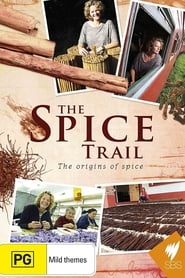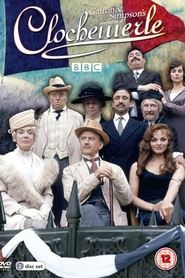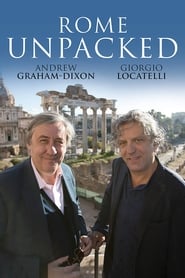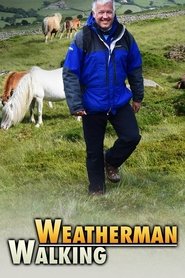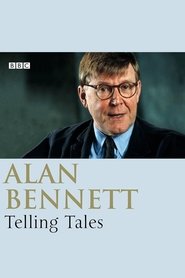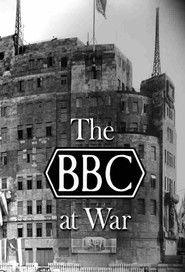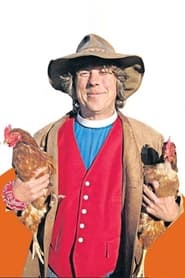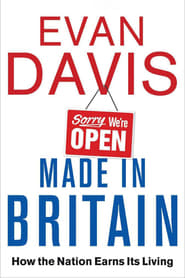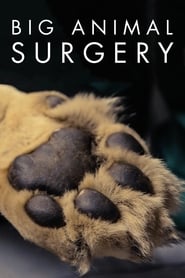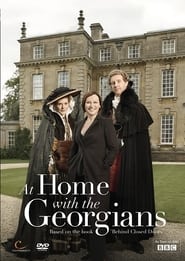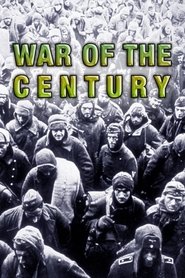Bbc Two TV Series - Page 68
-
Building Britain's Biggest Nuclear Power Station
2021
Hinkley Point C, in a remote corner of the Somerset countryside, will be one of the largest nuclear power stations in Europe, and the UK's first new station in a generation. The 22-billion-GBP project requires mammoth foundations for the two reactors, excavation of 3.5km cooling water tunnels under the Bristol Channel, and an airtight inner steel lining to contain any radioactive material in the event of a meltdown. -
Operation Snow Tiger
2013
star 9The Siberian tiger is one of Earth's rarest and most elusive animals, with as few as 300 remaining. It is so rare, more scientists have been to space than have seen one in the wild. In this series, Liz Bonnin, a former tiger biologist herself, travels to the frozen forests of the Russian Far East to help a team of scientists studying these big cats. Their goal is to uncover the hidden world of this mysterious predator, determine why they are declining and what can be done to save them. -
The Spice Trail
2011
The Spice Trail
2011
Kate Humble goes on the trail of some of the world's most valuable spices revealing their history, trade, mythology and usage. -
Island of Dreams
2019
Island of Dreams
2019
Necker Island has white sands, turquoise sea and girls in bikinis serving drinks. We all know that. What we may not know is that Sir Richard Branson has a great talent for solving the problems of our most-loved and messed-up celebrities while they’re enjoying some well-deserved island luxury. But does Sir Richard have a more important masterplan - a dark secret involving interplanetary travel? -
Indian Food Made Easy
2010
Anjum Anand teaches novice cooks how to cook delicious, healthy Indian food. -
Rome Unpacked
2018
Rome Unpacked
2018
Andrew Graham-Dixon and Giorgio Locatelli's latest Italian adventure brings them to Rome in search of the greatest food and art that they can find off the beaten track. -
Big Cats 24/7
2024
star 9Follow the lives of lions, cheetahs and leopards in the Okavango Delta, Botswana, a place described as one of Africa's last wildernesses. -
Weatherman Walking
2007
Weatherman Walking
2007
Weatherman Derek Brockway laces up his boots and heads outdoors for a seasonal tour of Wales's best walks -
Telling Tales
2000
Telling Tales
2000
Alan Bennett re-lives his upbringing in Leeds in a series of talks, both amusing and touching. -
The Truth About Lions
2011
From political intrigue to a complex social system and unexpected intelligence, Jonathan Scott explores the secret lives of lions. -
The BBC at War
2015
star 7An enthralling series exploring how the BBC fought not only Hitler but also the British government to become the institution it is today. -
His Lordship Entertains
1972
star 5.5His Lordship Entertains was Ronnie Barker's second sitcom vehicle for his Lord Rustless character, first seen three years earlier in Hark at Barker on ITV. This time though, Rustless had switched channels and was now appearing on BBC2. Hark at Barker had also included sketch inserts, whereas His Lordship Entertains was a regular sitcom. Set again in the aristocratic Chrome Hall, which had now become a hotel. It again also starred David Jason as the 100 year old Dithers and Josephine Tewson as Mildred Bates. Two actors who would go on to have a long working relationship with Barker. In fact all of the regular cast reprised their roles from Hark at Barker. Barker wrote all the scripts under the pseudonym Jonathan Cobbald. He liked to refer to the show as "Fawlty Towers mark one" as it appeared on television three years before that other hotel bound sitcom. Four episodes of the sitcom were recently performed on stage by Nottingham University's New Theatre. -
Reunion Hotel
2023
Reunion Hotel
2023
If you could reunite with one person from your past, who would it be? Alex Jones and her team give people a unique chance to make that happen at a one-of-a-kind hotel. -
How To Live A Simple Life
2010
Inspired by his experiences in 'Around the World in 80 Faiths', part-time vicar Peter Owen Jones returns to credit-crunch Britain and to the realisation that modern life has become a frenzy of spending and working. He yearns for a life of simplicity and meaning - a deeper connection to both nature and people. Filmed over the course of nearly a year in his beautiful Sussex parishes, the first in a three-part series follows Peter as he tries to turn his back on consumerism. -
Made in Britain
2011
Made in Britain
2011
Evan Davis looks at the British economy and asks what our country is good at and how it can pay its way in the world, -
Big Animal Surgery
2019
-
Men of Rock
2010
Men of Rock
2010
Geologist Iain Stewart retraces the steps of a band of maverick pioneers who made ground-breaking discoveries in the landscape of Scotland about how our planet works. -
At Home with the Georgians
2010
In this three part series, historian Amanda Vickery explores how the great British obsession with our homes began 300 years ago. Using the intimate diaries and letters of Georgian men and women, previously lost to history, she explores how the desire for a home revolutionised relationships between men and women. -
War of the Century
1999
star 7.5The War of the Century: When Hitler Fought Stalin, is a BBC documentary film series that examines Adolf Hitler's invasion of the Soviet Union in 1941 and the no-holds-barred war on both sides. It not only examines the war but also the terror inside the Soviet Union at the time due to the paranoia of Joseph Stalin - the revenge atrocities, the Great Purge of army officers, the near-lunacy orders, and the paranoia of being upstaged by others, especially Marshal Zhukov. The historical adviser is Ian Kershaw.


